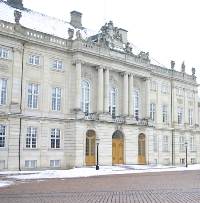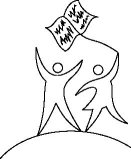Government Donors
Denmark

- © L. Alvarez
- Danish Royal Palace
Throughout the 1990s, Denmark became an increasingly important partner for UNESCO in development cooperation, both in terms of the provision of generous voluntary contributions and of flexible funding modalities. Denmark is still considered one of UNESCO’s most important donors in terms of voluntary contributions to the Organization’s activities, and the future cooperation with this donor remains promising.
Development cooperation: poverty reduction as a fundamental challenge
Denmark is among the countries that exceed the United Nations ODA target of 0.7% of GNI. As poverty reduction remains the overarching goal of Denmark’s development assistance policy, the Government ensures that the assistance is targeted to helping the poor by providing critical investments in education, health, infrastructure and support for the development of a private sector as an engine for growth. Special emphasis is put on the effort to promote the respect for human rights, good governance, and poverty reduction for women and their participation in the development process.In the coming years, Denmark’s development assistance will be focused on five areas:
- Social and economic development
- Human rights, democratisation and good governance
- Stability, security and the fight against terrorism
- Refugees, humanitarian assistance and regions of origin
- Environment
In addition, Denmark is working towards a more targeted and streamlined development assistance, and is actively participating in the work to promote greater international donor harmonization and coordination. In that context, Denmark is an active player in the Paris Declaration implementation efforts.
Cooperation with UNESCO: Supporting the implementation of MDGs as an overall objective
The overall objective of the cooperation between Denmark and UNESCO is to support the realisation of the Millennium Development Goals and the six goals for Education for All as set out in the Dakar Framework for Action. Denmark and UNESCO have a long partnership in extrabudgetary cooperation. From an active cooperation which covered many UNESCO activities during the 1990s, the cooperation has since been refined in order to target more focused priorities, in line with the Danish development cooperation. In this context, and while priorities are currently under discussion, the future cooperation between Denmark and UNESCO in the context of extra-budgetary contributions will be centred on mainly two broadly defined components, Education and Communication.
-the EFA Nordic Capacity-Building Programme
-UNESCO’s special institutes, such as the UNESCO Institute for Statistics (UIS), the International Institute for Educational Planning (IIEP), the International Bureau of Education (IBE, and the Institute of Education (UIE)
-the Global Monitoring Report: Denmark attaches high priority to the Global Monitoring Report (GMR), which is an important monitoring instrument that aims to inform, influence and sustain genuine commitment towards EFA.
In addition to the above, a new agreement was reached in 2005 to support the World Water Assessment Programme. The Danish support is focused on the monitoring of progress towards the internationally agreed targets and goals on water. The Danish Hydraulic Institute (DHI Water & Environment) is UNESCO’s key partner on this project, and will be focusing on Integrated Water Resource Management issues for the current project.
UNESCO works closely with the Ministry of Foreign Affairs, responsible for the Danish International Development Assistance (DANIDA) programme.
Geographic priorities
Denmark’s development assistance is focused on a selected number of developing countries. Africa south of Sahara remains the main recipient of Danish aid. The aid flow to Africa annually accounts for around 60% of Danish bilateral assistance to Danish programme countries.
Related Links
Commitment to Development: Priorities of the Danish Government for Danish Development Assistance 2007-2011
Nordic+ group joint action plan for effective aid delivery through harmonization and alignment of donor practices

Denmark’s support for the World Water Assessment Programme (WWAP)
More


